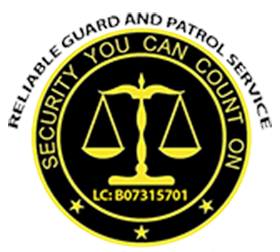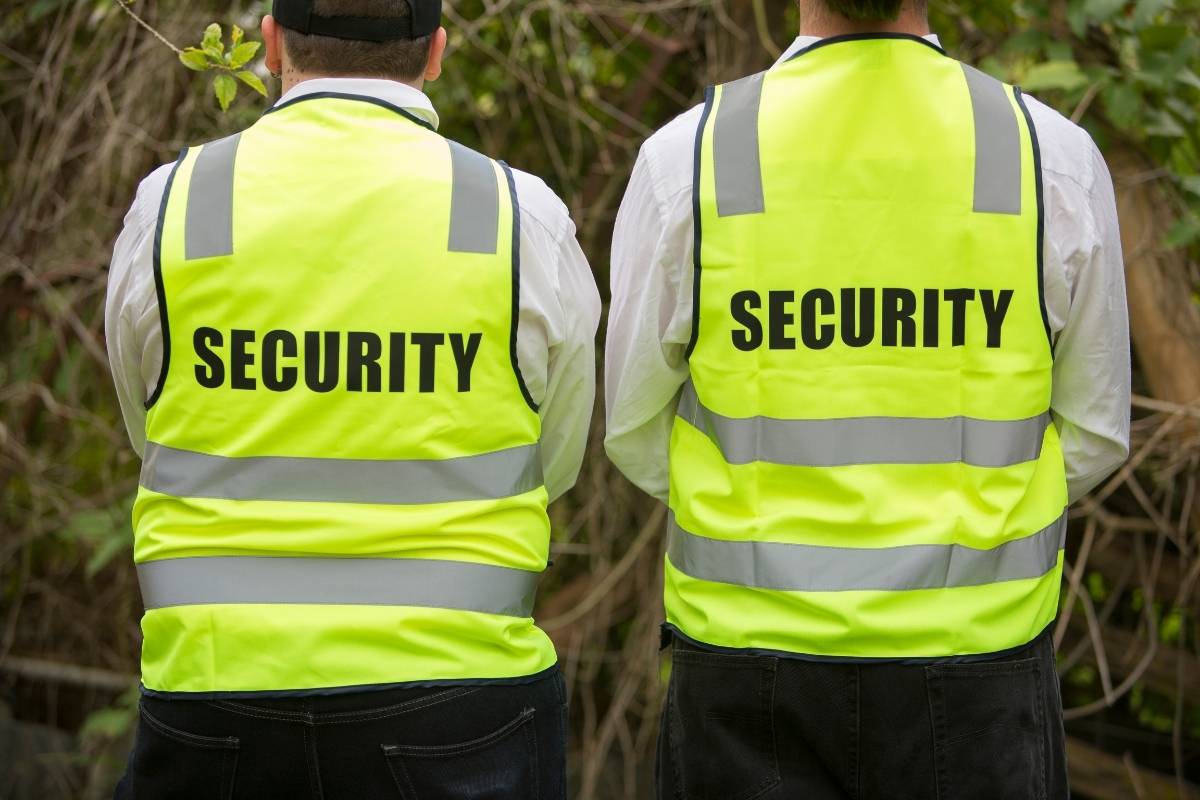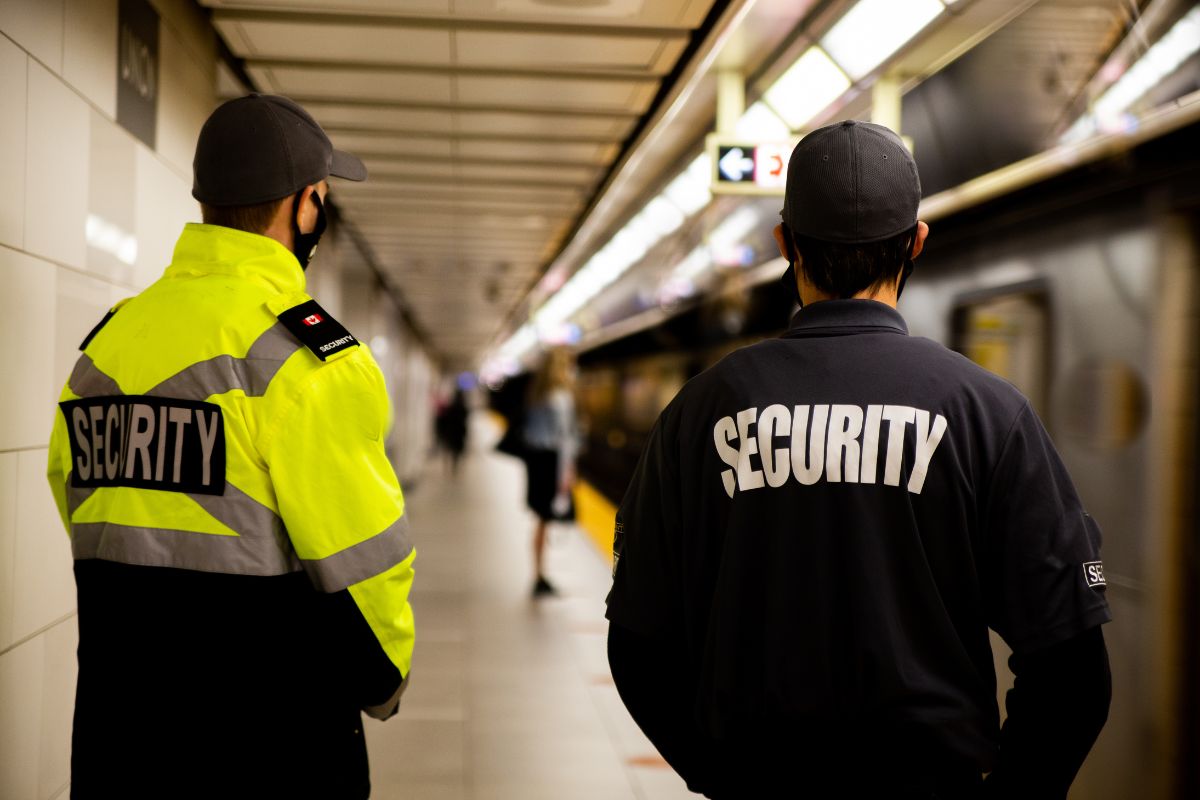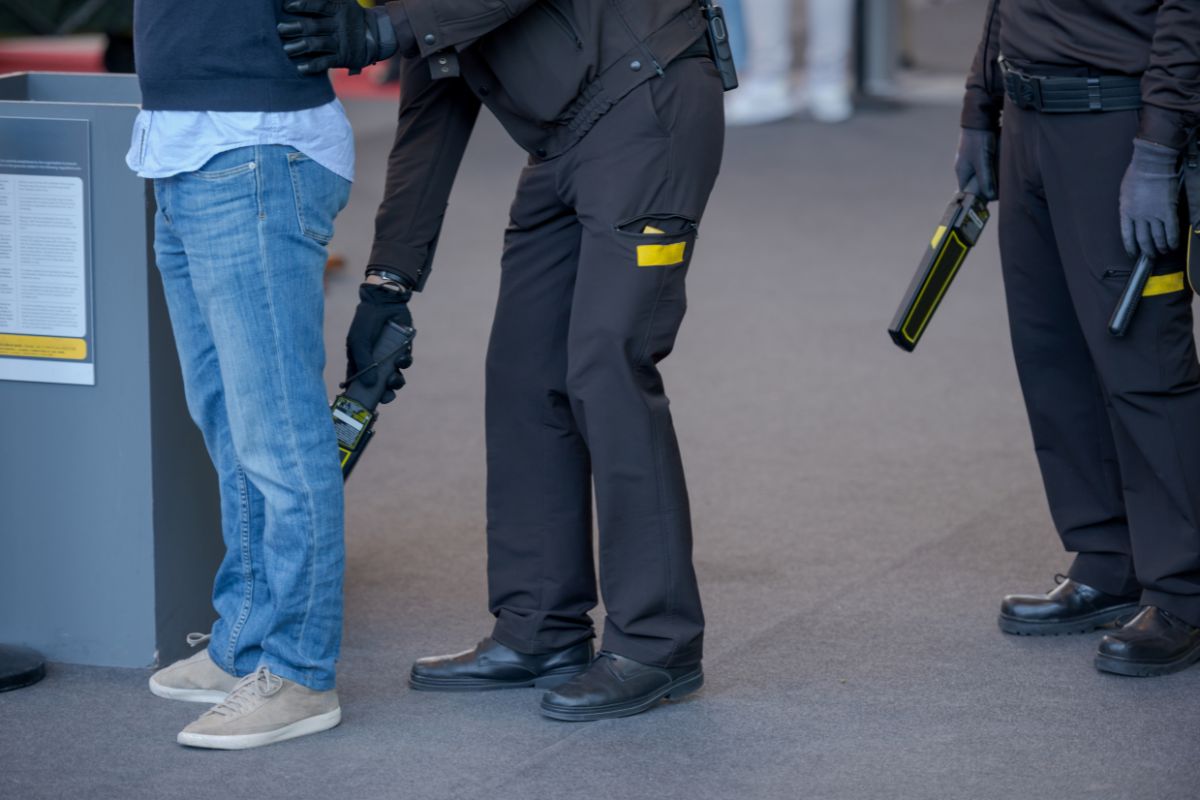
- Thu, Jul 2025
- |
- Reliable Guard and Patrol Service Inc.
Security guards in the United States can carry three main types of firearms: handguns, shotguns, and rifles but what they’re allowed to carry depends entirely on their state’s laws. Most armed security guards carry handguns (typically 9mm or .45 caliber pistols) because they’re easy to use and handle. Some states also let guards carry 12-gauge shotguns, while rifles are the least common and usually reserved for special teams protecting armored trucks or important buildings. To carry any firearm, security guards must be at least 18 years old, pass a background check, and complete state-required training. The specific rules, training hours, and types of weapons allowed change from state to state, with stricter states requiring more training and offering higher pay. Guards need proper permits for concealed carry (hidden weapons) or open carry (visible weapons), and they must follow strict rules about when they can use force. Whether you’re looking to become an armed guard or hire one, you’ll need to check your specific state’s regulations since there’s no single national standard for armed security.
Getting to Know Gun Laws and Rules
Gun laws for security workers and regular people are mostly decided by each state, and these rules change from place to place across the country. Instead of listing every single state’s rules in this article, we want to highlight some important differences that show up in all states’ official papers about gun laws and requirements. The Texas Department of Public Safety provides comprehensive guidance for security professionals operating in Texas.
Hidden Guns & Visible Guns
A gun is called “hidden” or “concealed” when people can’t see it in public. There are many holsters that let you reach your weapon quickly while still following concealed carry rules. Thirty-three states have laws that let regular people carry hidden guns if they get the right permit first. Seventeen states don’t have any rules against carrying hidden guns.
“Open carry” means guns that everyone can see. Forty-two states let people carry guns openly, but each state has different rules and limits. State laws often need extra permits for regular folks who want to carry their guns where others can see them. Make sure to look up your state’s official website to find out the exact rules and laws.
Small Guns & Big Guns
The main differences between handguns and long guns are about how you hold them and where they rest against your body. According to most law books, a weapon made to be held and shot with one hand counts as a handgun. This rule stays the same no matter how powerful the gun is, so a really strong pistol is still called a handgun, even if some people need to use both hands to hold it.
A long gun, on the other hand, is made to be shot from your shoulder. Shotguns and rifles are the most common types of long guns people buy in the USA. State and federal rules might split these weapons into smaller groups based on how many bullets they hold and how fast they shoot. But for this article, we can think of all shotguns and rifles as long guns.
Rules for Security Guards with Guns
Gun rules for security guards who carry weapons change based on what state you’re in and what kind of job they’re doing. For instance, a security guard watching a warehouse might be allowed to wear a handgun that everyone can see without needing lots of training. But guards who drive armored trucks might have to carry rifles for their job and need to complete tons of training first.
Bigger weapons and harder jobs mean guards need more training, and this makes their hourly pay go up too. Get to know your state’s gun laws and armed security rules before you start training or before you hire a guard to keep your property safe. Organizations like ASIS International provide valuable resources for security professionals seeking to understand industry standards.
What Armed Security Guards Need to Have
A big thing to remember from this article is that gun laws and rules are made by each state. This means that what armed security guards need to have, how they get their licenses, and what jobs they can do are different in every state. Because of this, how much armed guards get paid per hour changes a lot from one state to another. Armed guards in states with tough training and license rules can expect to earn more money.
Even though license rules are different all over the country, the Bureau of Labor Statistics gives us a basic list. The BLS says that anyone who wants to become an armed security guard will always need to meet these requirements:
- Be at least 18 years old
- Pass a check of your past records
- Finish your training classes
It’s worth knowing that you don’t need a high school diploma in every state. Before you apply for jobs, make sure to look up your state’s exact rules for getting an armed security guard license. People who want to hire security services should also take time to learn about their state’s rules and laws.

Getting Trained and Certified
Gun training for security guards can start with basic certificates that let them use handguns while working. In some states, people who already have permits to carry guns can take a simple security guard class and start working right away as an armed guard. In other places, guards need to take harder combat training before they can get certified to use guns.
Again, the training you need to become an armed security guard is decided by each state. We know this can be hard to figure out, especially for people who are new to security work. The ASIS CPP Certification represents the gold standard for security management professionals seeking advanced credentials.
Kinds of Guns Security Guards Can Use
Armed guards are showing up more often all over the United States. Most people now see security workers with gun holders on their belts pretty regularly at shopping centers and hotels. It makes sense, then, that pistols are the most common type of gun used by private security because they’re easy to handle and don’t stand out too much. Some states let private security guards use big guns like rifles for their jobs, but this isn’t common across the whole country.
Based on where you live, security guard weapons might include:
- Handguns: Security guards in all states use handguns to scare off bad guys and to protect themselves when their lives are in danger. Almost all armed security guards work with handguns that shoot 9mm or .45 caliber bullets.
- Shotguns: Some states let private security workers use shotguns when they’re on the job. Most guards pick 12 gauge shotguns. This kind of gun scares bad guys more than a pistol does and can be loaded with safer ammo like birdshot or rubber bullets that won’t kill people.
- Rifles: These are the rarest of the three kinds of security guard guns. Special guard teams use them most, like the ones who protect armored trucks or important buildings. Armed guards almost always use semi-automatic guns that shoot 5.56mm or 7.62mm bullets.
Even in states with easier rules for armed guards, you need more training to carry long guns than you do for handguns. Always look up your state’s official papers to get the right facts about security guard weapons. Security Magazine regularly publishes updates on weapon regulations and industry best practices.
Smart Ways to Carry Guns on the Job
The US Department of the Interior points out the many different places where guards work. Guards need to keep important things safe both inside buildings and outside, in all kinds of weather. Whether providing event security or protecting construction sites, being good at shooting at a practice range doesn’t always mean you’ll handle guns right when you’re actually working.
Armed guards and the people who hire them need to know about all the conditions at work sites and any real dangers that guards might face while doing their jobs. Security work can only be done safely and well when everyone knows what each guard is supposed to do on each job. The Occupational Safety and Health Administration (OSHA) provides essential workplace safety guidelines that all security professionals should follow.
Being safe with guns and doing armed security work aren’t things you learn once when a new guard finishes their first training. Guards who want to keep working need to take update classes and pass skill tests often, no matter what state they work in. Things guards should keep getting better at include:
- Safety Rules: These include knowing how to use your weapon well, the right way to move and store guns and bullets, knowing when to hide or show your gun, and being ready for different weather and times when it’s hard to see.
- Staying Alert: This starts with talking properly with the person who hired you. To do good security work, armed guards need to know which parts of a property have problems, plus any dangers that workers have faced before. Advanced gun safety classes help guards practice their skills in all sorts of different situations.
- Rules for Using Force: People who hire armed security workers should understand how their neighborhood feels about guns. Armed security guards don’t get the many years of training that police officers get. Stopping trouble before it starts and calming things down are always the best choices, and everyone should be clear about when guards might need to use force. Being clear about the rules keeps everyone safe with guns and helps armed security guards do their jobs well.
Laws to Know and When You Can Use Deadly Force
Armed security guards should always act like professionals and keep public safety in mind. The best training classes will have teachers who are veterans and can share real stories from their time working in the field. Again, exact rules change by state, but some basic ideas are the same for all guards across the country. The National Association of Security Companies (NASCO) represents over 500,000 security officers and provides guidance on professional standards.
Protecting Yourself
Americans have the right to defend themselves and the people they’re taking care of if they think they’re in danger or might get hurt. This includes security guards who are working, whether they’re providing unarmed security services or armed protection. If someone is clearly about to hurt you, any person has the right to defend themselves with the right amount of force, either to get away from danger or to stop the immediate threat.
This doesn’t mean you can use deadly force every time something happens. Self-defense must match the threat you’re facing, even if the threat is aimed at a security guard in uniform who’s protecting property. Security officers in Sugar Land, TX and throughout Texas must understand these distinctions.
When You Can Use Deadly Force
Security guards who have the right training are trusted with guns to handle situations where someone’s life is in danger. Calming things down is always better, but the simple fact that armed guards are needed shows that some security places might require the use of deadly force.
What counts as deadly force and when it’s okay to use it changes depending on where you are, but one thing stays the same: threats must be about to happen right now. A dangerous person must show they can hurt someone, have the chance to do it, and want to cause harm before a security guard can legally use deadly force. Guards need to know their state’s laws inside and out, because they could get in serious legal trouble if something goes wrong.
Reliable Guard and Patrol Service Inc has worked in the security business for many years. During this time, we’ve seen that armed guards do a great job of keeping trouble away. They usually stop bad guys from even trying to hurt people or damage property. When you have an armed guard at your location, deadly force is almost never needed.
Wrapping It Up
Armed security guards play a big role in keeping people and property safe across the United States. As we’ve covered in this article, guards can carry different types of guns, from handguns to shotguns and rifles, but what they’re allowed to use depends on where they work. Every state has its own rules about who can be an armed guard, what training they need, and which weapons they can carry on the job.
The most important thing to remember is that gun laws for security guards aren’t the same everywhere. Before you start training to be an armed guard or before you hire one, you need to check your state’s specific rules. Good armed guards know their weapons well, stay alert to danger, and understand exactly when they can use force. They get regular training to keep their skills sharp and always put safety first. The Texas Workforce Commission provides resources for those seeking employment in the security field.
At Reliable Guard and Patrol Service Inc, we’ve seen that well-trained armed guards do more than just carry guns – they stop problems before they start. When you have professional armed security at your location, most troublemakers stay away. If you’re ready to take the next step, whether that’s becoming an armed guard or hiring security officers in Pearland, TX, make sure you do your homework on your state’s laws first. Contact us to learn more about comprehensive security solutions.
Frequently Asked Questions
Do I need a high school diploma to become an armed security guard?
Not always. While the US Bureau of Labor Statistics says all guards must be 18 or older, pass a background check, and complete training, not every state requires a high school diploma. Check your state’s specific rules to be sure.
What’s the most common gun that security guards carry?
Handguns are by far the most common, especially 9mm and .45 caliber pistols. They’re popular because they’re easy to handle, simple to carry, and don’t stand out too much. Most armed security work involves handguns rather than bigger weapons.
How much training do I need to carry a rifle as a security guard?
Rifle training takes much more time than handgun training, even in states with easier rules. Rifles are mostly used by special guard teams, like those protecting armored trucks. The exact hours of training you need depends on your state, but expect it to be a lot more than basic handgun certification. The Security Industry Association offers resources on training standards across different states.
Can I use my personal carry permit to work as an armed guard?
It depends on where you live. Some states let people with carry permits take a basic security class and start working as armed guards. Other states require special security-specific training no matter what permits you already have. Always check your state’s security guard licensing rules.
When can a security guard legally use deadly force?
A guard can only use deadly force when there’s an immediate threat to life. The dangerous person must show they can cause harm, have the chance to do it, and clearly want to hurt someone. The threat must be happening right now, not something that might happen later. Every guard needs to know their state’s exact laws about this because making a mistake can lead to serious legal trouble. The Better Business Bureau of Greater Houston maintains records of reputable security companies that properly train their guards on use of force policies.







